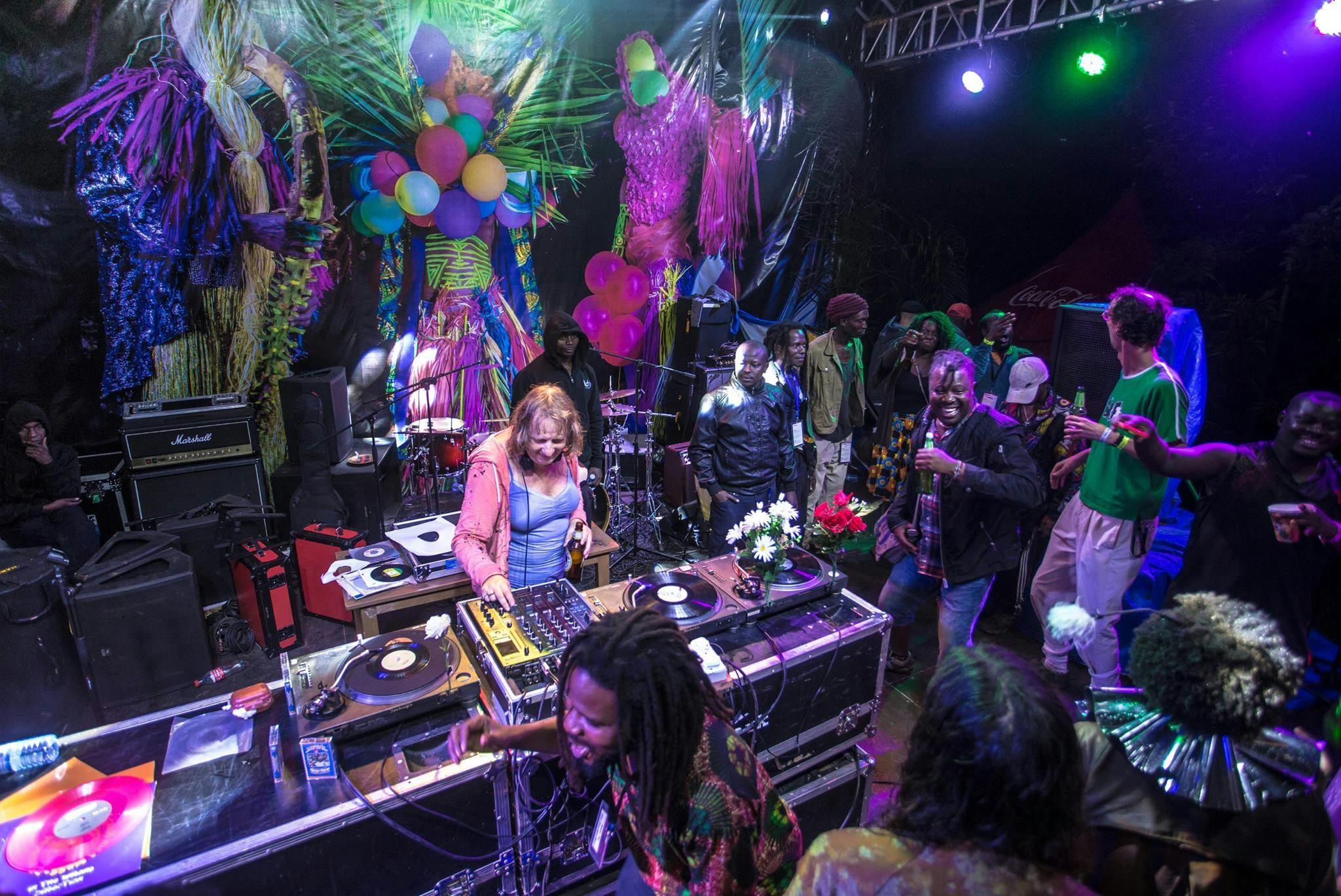According to DJ Marcelle, if you go to her house in Amsterdam for dinner, she'll try to make you feel as comfortable as possible (we had to take her word for it as we met over Zoom). But when it comes to her DJing approach, the opposite holds true – Marcelle is boldly unconcerned with the audience’s expectations, a conviction that goes back to her punk roots. “I don’t like when everyone is in their comfort zone,” she says. “When I went to gigs and saw The Slits or The Specials for the first time, they were so exciting in a way that got you out of your comfort zone, or made you think, ‘What is happening now? Do I even like this?’”
Playing on three turntables at once, Marcelle layers leftfield electronic club music, dub, techno, African music and avant-garde without much regard for beatmatching. She doesn’t lean into the self-seriousness of many contemporary DJs – her website is decorated with illustrated flowers and pictures of her eating soup, and some of her original songs have titles including ‘Respect My Snack Foods’ and ‘Too Late For the Beach?’. Recently, when a record got stuck in a groove by mistake, she let it play out for 10 minutes rather than scrambling to fix it. Sometimes, she’ll play a cowbell over a booming bass track, or start a set with a sample of someone screaming “help” for a few minutes longer than you might expect.
At a Marcelle set, you’ll feel surprised and confused – it’s not how you’d want your dinner guests to feel at the end of the night, but it’s how good art should make you feel. And she uses this uncompromising approach to mixing whether she’s playing a massive festival stage at Sónar or a squat near her house. Here, we delve into her idiosyncratic craft, and learn about her early punk days and why she put a slice of cake on her turntables.

